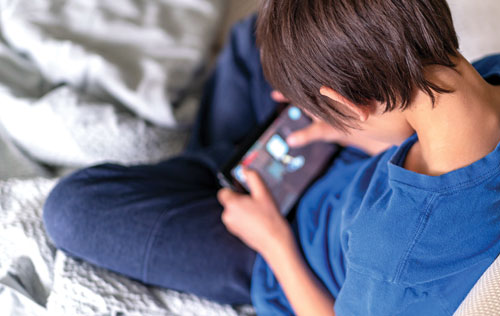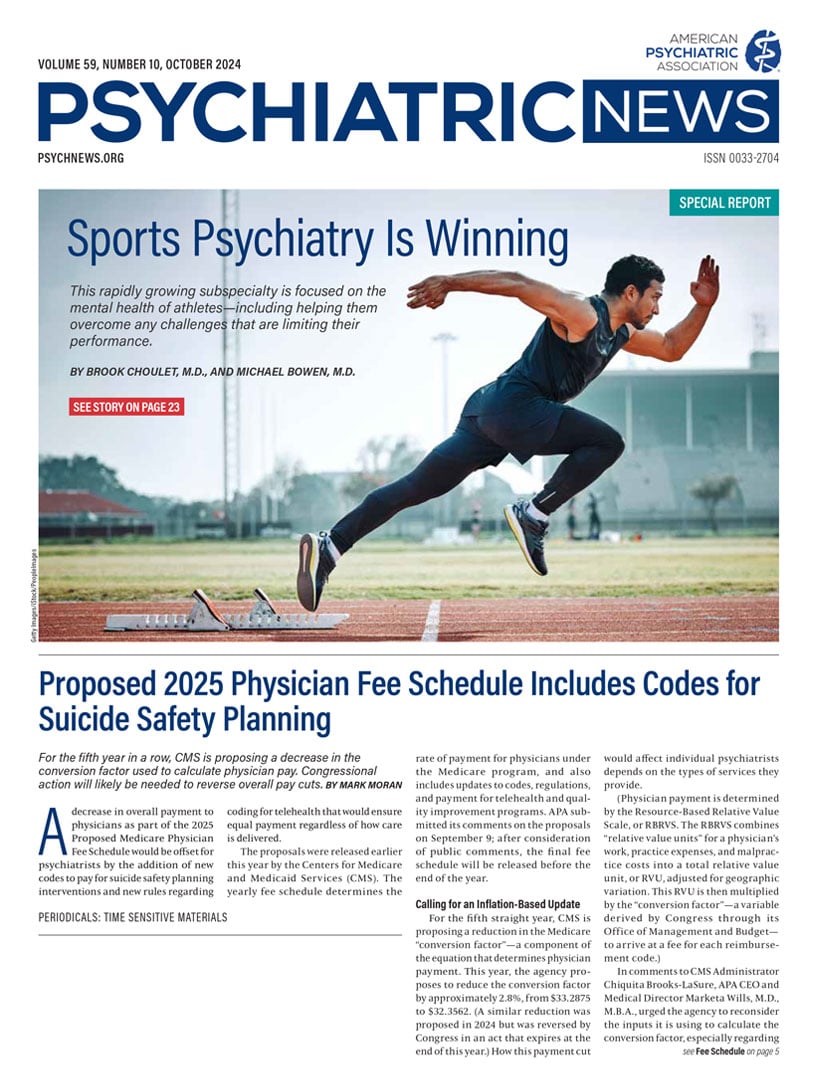A
report in
JAMA Network Open suggests that decreasing screen time in children and adolescents even briefly may have a positive effect on their mental health and their interactions with others.
The study was a prespecified secondary analysis of SCREENS (Short-Term Efficacy of Reducing Screen-Based Media Use), a randomized clinical trial that included 89 families in Denmark, 45 of which (with 86 children) were exposed to a screen media reduction intervention while 44 (with 95 children) were not exposed to the intervention.
Families in the screen media reduction group handed over all smartphones and tablets for two weeks and were told to significantly reduce their leisure use of other screen devices such as televisions. The families were given non-smartphones to stay in touch and were allowed 30 minutes of screen time per day for necessary activities.
The primary outcome analysis revealed that children and adolescents who were in the screen media reduction arm increased their non-sedentary leisure time by 45 minutes per day compared with children and adolescents in the control group.
In the present study, the authors reported the results for children’s and adolescents’ behaviors before and after the intervention period using the Strengths and Difficulties Questionnaire, which has been used to measure mental health in young people. Investigators found that youth who participated in the intervention experienced greater improvement in total behavioral difficulties compared with control participants. The greatest improvements were observed for internalizing symptoms, such as emotional symptoms and peer problems and prosocial behavior.
Investigators did not find any significant differences between subgroups in the study based on sex or age group (4 to 7, 8 to 10, 11 to 17).
High-Quality Evidence
Alexia Polillo Ph.D., staff scientist at the Slaight Family Centre for Youth in Transition at Toronto’s Centre for Addiction and Mental Health, applauded the investigators who conducted this study.
“This is an intervention study,” Polillo said. “We don’t have a lot of experimental interventions or randomized, controlled trials in this area. We do really need that, because that’s going to give us the high-quality evidence to guide more policy and practice implications.”
Polillo said that it would have been beneficial for the primary analysis to isolate social media use from screen time. “It is only capturing screen time,” Polillo said. “It’s not looking at other really high-use areas, at least for adolescents. The choice of screen time [instead of social media] may have been because it is younger children. We don’t see high rates of social media use in 9-year-old children or 10-year-olds, because there is so much parental involvement.”
Polillo noted that the sample had few children ages 13 to 17—a time in life when individuals can be highly influenced by what they see on screens, particularly social media, and place much stock in the impressions that their peers make on them. “It’s really a vulnerable time developmentally,” she said.
“They didn’t look at a high-risk group,” Polillo added. “We need more research in vulnerable groups. The question is, if this intervention was implemented with a high-risk group, would we see the same findings?”
Setting a Good Example
According to Howard Liu M.D., M.B.A., chair and professor of psychiatry at the University of Nebraska Medical Center and chair of APA’s Council on Communications, the key message from the study is that reducing screen time does not have to be a long-term effort to reap benefits.
“The main point of this study is that for some families, cutting down on screen time use for two weeks can result in more positive social interactions and less negative emotions, for a short period of time,” Liu wrote in an email to Psychiatric News. “And families can try this on their own when they feel that screen time is eroding family cohesion, social interactions, or the mental health of their child or teen.”
Because the study looked at a brief period of screen reduction, it leaves the question unanswered as to the effects of a prolonged period of decreased screen time. “But as a child and adolescent psychiatrist, I do work with many families that implement a strict screen time policy during the school year,” Liu wrote.
“Its effectiveness depends on how consistent the parents or guardians are at reducing screen time, the ability of the child or teen to redirect their attention and manage challenges like FOMO [fear of missing out], etc. Many of the kids and teens tell me that they don’t miss [screens] once they go through a period of psychological withdrawal from the constant notifications from social media, etc.”
More research on this subject is necessary before any general recommendations with regard to modifying screen time are made, according to Liu, who added that parents should set an example for their kids by reducing their own screen time.
“This study was performed on Danish families, which may not reflect U.S. families or other populations around the world,” he said.“But I would say that parents can do their own trial during key periods—the school year, over school or summer breaks, etc., and see how their kids react. I would add that it is harder for kids to go without screen time if parents are not trying to do the same, as it can seem hypocritical to kids and teens.”
According to the American Academy of Child and Adolescent Psychiatry (AACAP), the study underlines that the maxim “everything in moderation” applies to screen time exposure.
“While content of screen media is another factor that we must consider, the more screen time a child is exposed to, the less healthy that child is likely to be,” according to a response from the AACAP. “It doesn’t mean that any screen time is damaging, but that moderate screen media habits are significantly healthier than heavy use.”
The SCREENS study was funded by the European Research Council. ■

